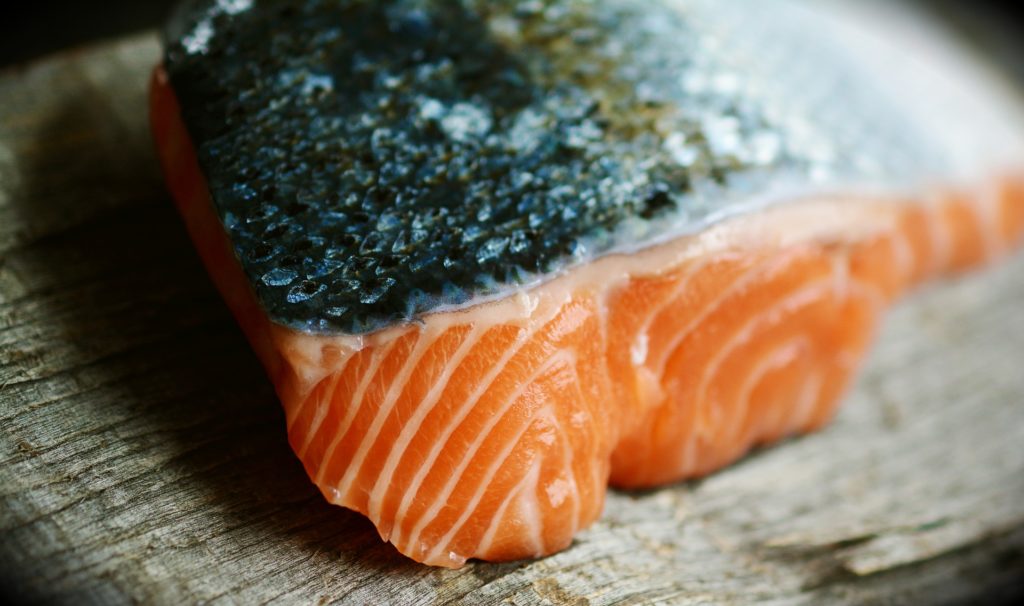The Dangers of Following a Vegan Diet – What They Don’t Tell You
With all the hype surrounding the vegan diet, it can become extremely easy to fall into the movement without knowing about the possible ramifications of following this diet long term.
In fact, although the term “super food” has become widely associated with the vegan movement, we personally believe the greatest super foods come from animal products such as liver, collagen, bone broths, bee pollen, raw honey, ghee and raw cod liver oil.
We say this to clear the air surrounding our website name and to let our readers know that WE DO NOT promote a vegan diet.
Of course plant super foods can be a great addition to the diet and we frequently write about the many amazing health benefits of them. However, when individuals attempt to remove all animal foods from the diet and subside on plant foods only, serious health problems could result. Regardless of how
“super” a food may be, if the diet is lacking in key animal nutrients, health will suffer.
Personally, we believe diet should be built around predominately high quality animal foods and supplemented with various super foods such as the ones we often write about.
Below are just some of the reasons we believe animal foods should make up the majority of an individual’s diet.
Vegan Diets Contain No DHA or EPA
Despite popular belief, vegan diets do not contain the two omega 3 fatty acids DHA and EPA. They do however contain ALA. DHA, EPA and ALA make up the three omega 3 fatty acids required for good health.
In order for vegans to obtain EPA and DHA, they must first convert ALA into these two essential omega 3 fatty acids. Research has shown that that this conversion process is extremely inefficient and most cannot convert enough ALA required for good health (1).
Furthermore, both DHA and EPA play an extremely important role in the body and are needed for a healthy nervous system and brain development. Research has shown that these two omega 3 fatty help prevent degenerative diseases such as Alzheimer’s and Dementia (2).
Unfortunately for vegans, these two omega 3s are only found in animal foods. Although certain type of algae such as Chlorella and Spirulina do contain DHA and EPA, it’s nowhere near the amount found in animal foods such as fish and liver.
Lack of Vitamin B12
There is no getting around this one; vegan diets do not contain vitamin b12. Even vegans themselves admit that their diet is deficient in this key vitamin. Many will resort to taking a in order to maintain b12 levels, while others will inject themselves in their buttocks with synthetic b12.
Research has shown that b12 is necessary for maintenance of the nervous system and serious disorders will result if an individual is b12 deficient (3). Anxiety, depression, memory loss, poor balance, paranoia, fatigue and weakness all symptoms of a b12 deficiency (4).
Yet, vegans will claim that b12 is in soil and that if we didn’t wash our vegetables we wouldn’t run into a b12 deficiency problem. This is also a fallacy since the amount of b12 found in soil is minuscule when compared to animal protein. In fact, the body requires b12 each day in order function properly.
Furthermore, there is a myth that b12 can be manufactured by the microbes in your gut. Vegans will claim that once the gut microbiome is corrected, we can manufacture this essential vitamin ourselves. Again, this is also false. Research shows that b12 cannot be manufactured by the human gut in significant quantities and must be obtained through outside sources (5).
Humans have extremely similar digestive tracts when compared to other carnivores. We do not have a rumen like the cow and we cannot breakdown cellulose the same way these animals do. Vitamin B12 must be obtained from an animal source.
Vegan Diets Contain no D3 or Cholesterol
Typical vegans will say that the sun is enough for your vitamin d needs. This is true to some extent, but without the presents of Cholesterol, vitamin d cannot be properly manufactured (6). Yes, that’s right; Cholesterol is needed for vitamin d synthesis and is an extremely important building block in the human body.
It must be understood that we do not “obtain” vitamin d from the sun, rather the sun signals to our body to produce vitamin d. In fact, vitamin d isn’t even a vitamin, it’s actually a hormone (7). In order to manufacture vitamin d, the body must have cholesterol present. This is why every single animal food that contains vitamin d also contains cholesterol. The two work synergistically together.

Vegans will claim that if your liver is healthy than you will produce your own cholesterol. This is true to some extent, but the body actually produces its own cholesterol so that you will not die! It’s a survival mechanism built into the human body that can be used during times of famine or fasting. However, the body will eventual run out cholesterol if it is not being added back into the diet.
Simply put, you can sun bathe all you want, but if you aren’t not consuming adequate amounts of cholesterol you will not be producing any vitamin d.
No Real Vitamin A
Vitamin A is another myth pushed by vegans. Again, just like the body must convert ALA to DHA and EPA on a vegan diet, it must convert beta-carotene into vitamin A in the same manner.
This conversion is just as inefficient as the omega 3 conversion and must adults cannot do it (8). Vitamin A is necessary for vision, regulating cell growth and maintaining teeth and bones (9)
Full of Anti Nutrients
Almost every single food found on the vegan diet contains some sort of anti-nutrients. All plants contain phytic acid, oxalates, gluten, tannins, saponins, lectins and many more. Typically, these anti-nutrients don’t pose a problem when animal foods are in the diet and the plants are prepared properly (cooking, fermented, soaking and steaming).
However, those who promote a raw vegan diet consume the most of these anti-nutrients. The only way to lower these anti-nutrients found in plant foods is through the methods mentioned above.
Research has found that anti-nutrients found in many plant foods actually bind to key minerals such as calcium, magnesium and zinc (10). If these plant foods are eaten long enough in the absence of animal foods, serious nutritional deficiencies could occur in the body.
That being said, all of the un-contacted tribes discovered around the world ate a combination of both animal and plant foods. Even the Inuit who lived in the harsh cold consumed seasonal berries and other seasonal plant foods.
However, problems arise when individuals attempt to remove all animal foods from the diet and attempt to live solely on plants. Our Ancestors never did it and our body is not designed or equipped for it.

Does Not Contain Vitamin K2
Lastly, the vegan diet contains no vitamin K2. Yes, it contains K1, but this is not the same as K2. In fact, many believe that vitamin k2 is actually the “x-factor vitamin” Dr. Weston Price talked so much about (11). He believed that this X-factor vitamin was what kept the tribes people healthy and free of the degenerative diseases that were experienced in the west.
Research now shows that Vitamin k2 is necessary for the transportation of calcium into the bones (12). When there is lack of vitamin k2 in the diet, calcium deposits will begin to form throughout the body. This is often referred to “calcification” and is what causes arthritic type symptoms.
Also, when there is lack of vitamin K2 in the diet, tooth decay is often a result. Again, K2 helps drive calcium into the bones (teeth our bones) and helps keep both our teeth and bones strong. In fact, fragile bones are often not a calcium issue, but rather a K2 issue.
Unfortunately for vegans, vitamin K2 is only found in animal foods. Natto, a fermented soy bean product, has been shown to contain small amounts of vitamin K2, but nowhere near the amount found in animal foods.
You Be the Judge
This website was created to help people and give them best information possible. We believe in “balance” and that any “extreme diet” will eventually leave the individual deficient in key elements.
Vegan diets fall under the extreme category and we have just listed several reasons on why we do not promote or recommend them. We believe super foods are an excellent addition to the diet when there are adequate amounts of animal foods present.
For those interested in learning more about the subject, Weston A. Price Foundation is a great resource to utilize and has unlocked many of the missing links when it comes to optimal health in our opinion.
11. Price WA. Nutrition and physical degeneration: a comparision of primitive and modern diets and their effects. Oxford: Benediction Classics; 2010.


Leave a Reply